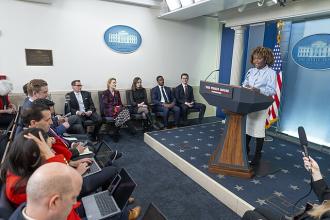Baltimore, MD - Sept. 16, 2018 - The following email was sent by Rabbi Marwick to the Shomrei Emunah Membership.
A Message from Rabbi Marwick: Yom Kippur Reminders
Medical Concerns and Fasting: Those who, due to health reasons may not be able to fast on Yom Kippur, must consult both their doctor and a rabbi as to how to proceed. One may not fast if it could create a medical danger to their life, or if it compromises their ability to fight a dangerous medical condition they are experiencing. Even in such situations there may be times when some level of fasting can be maintained (shiurim). The details of these laws are quite complex, both in terms of how and when they should be applied. As such, it is very important to discuss these issues with both a rabbi and a doctor.
Pills: Individuals taking medications must consult their doctor and a rabbi as to how to proceed on Yom Kippur. It is extremely important that one not decide on their own to discontinue the usage of critical medications such as heart, blood pressure, diabetic, or psychiatric medications for the day. Anyone taking blood pressure medications must be especially conscious of hydration concerns. A rabbi can guide you as to the appropriate way to take these medications, if you are unable to swallow them without water.
Fasting: It is forbidden to eat and drink on Yom Kippur. This prohibition limits us from even small amounts of food or drink. One is not permitted to wash out their mouth on Yom Kippur with water or mouthwash.
Washing: Washing is generally forbidden on Yom Kippur, unless the washing is necessary for basic cleanliness. The custom is to be quite strict regarding this prohibition. Ritual washing, such as when you wake up in the morning or emerge from the bathroom, is limited to the fingers only, not the usual washing of the entire hand. [The only exception to this is for the Kohanim before Birchas Kohanim, who wash the entire hand as usual.]
Anointing: This prohibition includes the application of any oils, sprays, or powders on Yom Kippur, including perfumes and deodorants. Anointing is even more limited than washing in that while it may be done to address the actual ailment, it is not permitted for the sake of cleanliness.
Shoes: It is forbidden to wear any leather footwear (shoes, sneakers or slippers) on Yom Kippur. People should be aware that many types of sneakers are made of leather and should not be worn on Yom Kippur.
Intimacy: On Yom Kippur, a husband and wife must interact using all of the limitations and safeguards (harchakos) applied during the period of niddah.
Candle Lighting: If one lights candles at home and wishes to drive to shul after lighting, they must explicitly state before lighting that they do not wish to accept Yom Tov with the lighting. In this situation, they should not recite the shehechiyanu bracha when lighting, but should say it with the congregation at Kol Nidrei.















